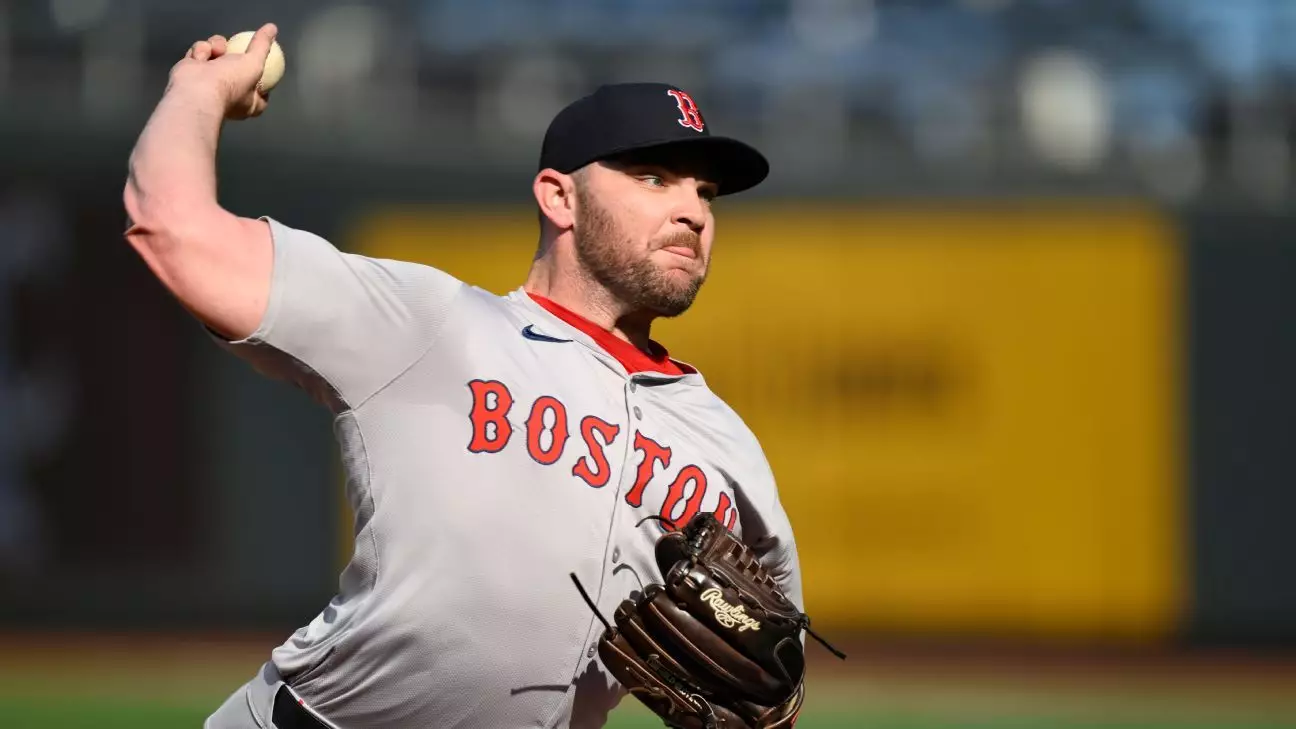In today’s hyper-connected world, professional athletes are no strangers to public scrutiny. The recent outcry from Red Sox pitcher Liam Hendriks is a poignant reminder of the insidious toxicity that festers in the realm of sports discourse. Following a string of poor performances and a heartbreaking loss to the New York Mets, Hendriks revealed the disturbing death threats aimed not only at him but also at his family. Such disgusting behavior encapsulates the darker side of fan engagement—where lines between passion for the game and harmful obsession blur dangerously.
While athletes are undoubtedly in the public eye and subjected to critique, the level of vitriol directed at individuals like Hendriks crosses all boundaries of civility. Boston’s manager, Alex Cora, spoke candidly about the pressures faced by players in an age dominated by social media, where anonymity allows for the most heinous of insults. “We’re in a public eye, and people feel they have the right to say whatever they want,” he observed sorrowfully. This sentiment resonates deeply; we must ask ourselves at what point fandom turns into cruelty.
The Costs of Digital Anonymity
In this specific case, social media transformed traditional critiques into a hideous form of harassment, allowing cowardly individuals to feel empowered by their anonymity. It’s remarkably easier to hurl threats from behind the safety of a keyboard than it is to confront a human being face-to-face. The so-called “burner accounts” signify an alarming trend; they are much more than mere façades—they embody the detachment that some fans feel from the very human lives they are targeting. When Hendriks lamented, “enough is enough,” he struck a chord that too many sports figures could identify with.
The implications of such behavior extend beyond mere bullying; they underline an alarming epidemic of toxic masculinity that is breeding contempt in sports voices. What do we expect from an environment that glorifies aggression and hyper-competitive narratives? Players are reduced to numbers and statistics, with any semblance of humanity stripped away in favor of rosters, scores, and game outcomes. In such a world, a bad pitch or a missed play can spiral into threats against one’s life—harrowing proof that a toxic culture can be deadly.
Language Matters: A Call for Empathy
When responding to the pressures of performance, athletes often turn to their managerial staff for support. Cora’s empathetic stance offers a glimpse of humanity missing from many interactions today. He openly acknowledged having reached out to Major League Baseball security after facing backlash for his own past during the Astros’ cheating scandal. This statement reiterated that even those in positions of authority are subject to the paranoid fallout of public opinion. His heartfelt confession about fearing for his family’s safety amplifies a collective experience that should not be taken lightly.
Cora decisively remarked, “We have to protect our players, and we have to voice what we think.” This is an essential call for a cultural shift in sports—a shift that embodies compassion over hostility and understanding over animosity. Verbal abuse should never be normalized as merely part of a player’s job; the urgency for empathetic engagement is paramount.
A Dangerous Intersection of Gambling and Emotion
As we navigate through a new landscape of sports betting, Cora identified a “dangerous path” where fan investment alters emotional engagements with players. Stakeholders in the sport—including fans—have newfound stakes in the outcomes of games, making every pitch carry heightened significance. This investment can lead to emotionally devastating repercussions for players.
When enraged fans lament a costly decision—like a missed catch or a poor play—they are not merely reacting to the game; they could be threatening someone’s life. The volatile mix of gambling and emotional response creates a terrifying environment for athletes who already juggle immense pressure. This culture can have dire consequences if we remain passive in the face of real emotional and psychological trauma inflicted upon these players.
Rethinking the Fandom Paradigm
Critical conversations surrounding mental health in sports are long overdue. The virulent nature of online harassment towards athletes calls for a reevaluation of what it means to be a fan today. It is time for the sports community to prioritize respect over blind loyalty. As advocates for change, true fans must find their voice and challenge harmful behaviors in the name of compassion and understanding. The time has come to reinforce that the players we cheer for are human beings, deserving of dignity and kindness.
In this new world of sports, we must all strive to lift our voices in support of those who entertain us and challenge the toxicity that could otherwise lead to tragedy—because, ultimately, our shared love for the game should unite us, not divide us.


Leave a Reply